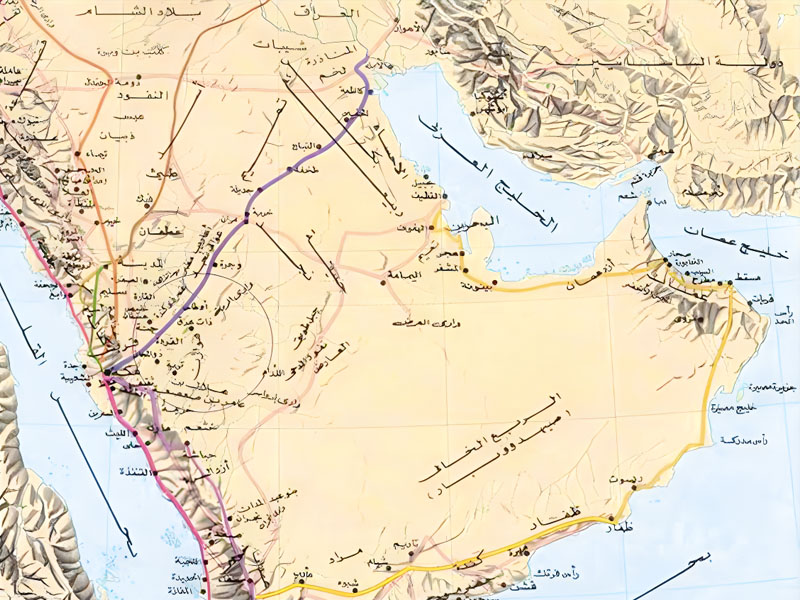Recording the Pre-Islamic Poetry and Recording the Nabatian poetry Comparisons and conclusions
Issue 6

Saad Alsoyan - Saudi Arabia
T his opens another window for the comparative studies between the two inherited poetries and to take advantage of scientific results that we can get from studying one of them and employ them to understand the other, particularly with regard to the theory of oral formulation and issues of uncertainty and plagiarism. This is the fate of nations, when they move from the stages of oral culture to written culture stages they ensure the recording of all that is possible. Often, the recording and documentation begin modestly restricted to record bare texts, then grow and flourish by the progress of time. As the links between the past and present cultures become lazy, as a need is insisting for the addition of comments, explanations and geographic, historical, social, cultural, and linguistic information that explain the texts and make it closer to the mentality of the audience. The researcher reminds that if we look at the circumstances recording the pre- Islamic poetry, which began in the second century AH, and the circumstances of the recording Nabatian poetry that was remarkably active in the last century, we find that despite the great similarity between the two cases, it is not without some differences that we should be aware of them. It is known that the Arabic writing was not developed to a degree that helped its expansion and its use easily only after the emergence of Islam, which encouraged learning, reading and writing because they are part of the necessities of knowing the religion and reading the Coran. This means that writing has to some extent played a role in the conservation of Nabatian poetry from its inception through the first and successive stages, a role that it had not played for the pre- Islamic poetry that was not recorded until the end of the Umayyad period. In such conditions where learners were rare and writers served only the elite, namely princes, sheikhs and dignitaries, and affluent, only poems oriented to those are recorded. The poems of illiterate poets, in remote villages and deep desert, where no writers exist, are quickly forgotten and banished from the collective memory. The interest in the pre-Islamic poetry stems mainly from the interest in the classical Arabic, which hosts forensic sciences and religion, which requires every Muslim to learn. Folk poetry in local dialects is less considered, and its scholars are seen with mistrust and suspicion. Many feel that Nabatian poetry represents an aspect of cultural lag, an element of the social and political fragmentation, and a factor of awakening rancor and partisanship and the revival of interest, and that its study is futile and unproductive, so it is better to bury it, forget and disregard it.


































































